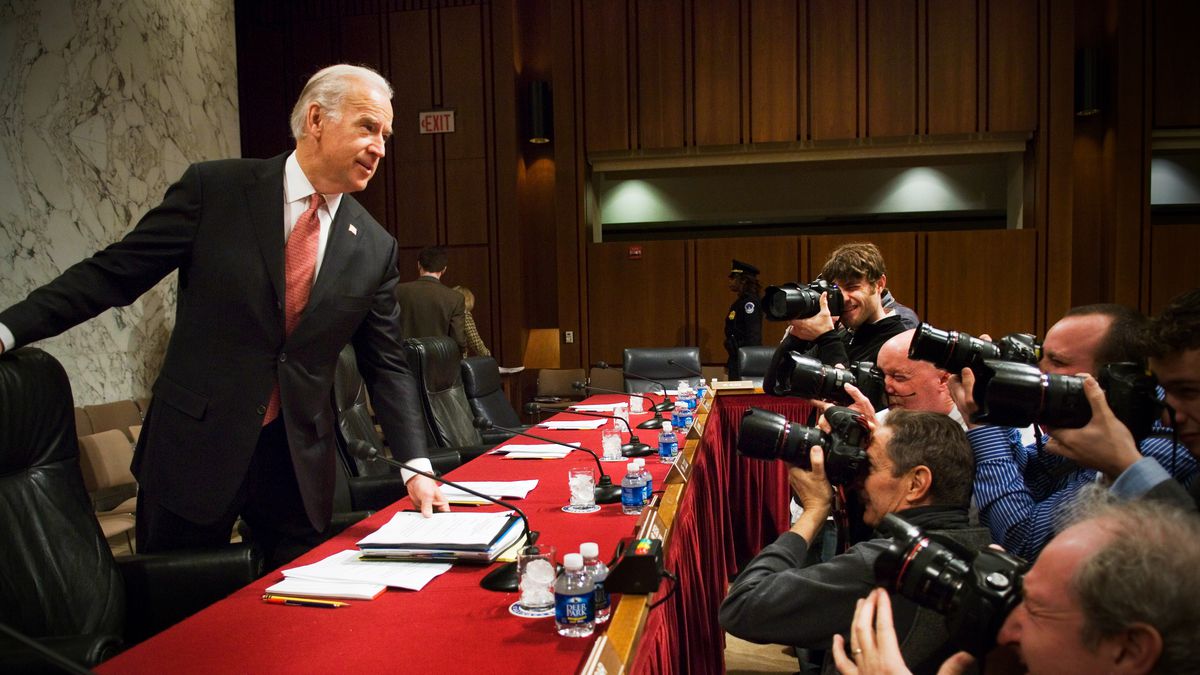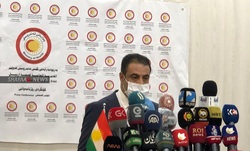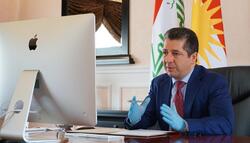Joe Biden "The Kurds' Friend": the shape of U.S. policy in the Middle East under the new administration

Shafaq News/ Donald Trump’s foreign policy’s files –on which he was so dependent to help him stay in the white house for a new term, failed him. Trump’s defeat –by his democratic opponent, Joe Biden, was anticipated after so many domestic issues and failures.
Joe Biden, the 46th president of the United States, has become perhaps the most experienced and closely associated American president in Iraq -particularly the Kurds.
It was remarkable that foreign policy issues were almost absent for the first time from the U.S. elections, and the Republican-Democratic struggle was almost confined to domestic issues such as the economy, the COVİD-19 pandemic, and racism.
Iran and Trump
Perhaps the foreign issue that was most present in this U.S. partisanship was Iran, especially after Trump ordered the assassination of The Quds Force’s commander, Qasem Soleimani; in conjunction with a series of harsh financial and trade sanctions against the Iranians, leaving repercussions on the Iraqi scene.
Democrats have denounced Trump for exiting the Nuclear Deal with Iran, and then trying to push things to the limits of extreme pressure and risking a war in the Middle East. Moreover, they capitalized on the fact that 70% of U.S. voters oppose U.S. military roles in the Middle East, after decades of devastating military interventions.
Biden and tomorrow's opponents
This does not mean foreign policy does not matter to the new U.S. president, as Biden’s approach toward the file of the Middle East is highly anticipated.
Iran, Turkey, Syria, the Gulf states, and Iraq will be at the heart of the post-Trump era. During his four years in the White House, Trump repeatedly emphasized his desire to end the useless U.S. involvement in the "Endless wars in the Middle East". Therefore, to fulfill his pledges to American voters, Trump agreed with the Iraqi Prime Minister, Mustafa Al-Kadhimi, to reduce the number of U.S. troops stationed in Iraq to less than 3,000.
It is of importance to monitor whether Biden, who has been on the Iraqi scene since his days as former U.S. Vice President during Barack Obama’s era, will proceed with the plan to reduce the U.S. military role in Iraq, or will make adjustments to U.S. influence in this vital country in the heart of the Middle East. This step overarches major modifications regarding the relation with Iran, whether by escalation or containment -with all the implications it carries on Iraq itself.
Biden's return to the White House is likely to be a boon for gulf capitals, particularly Abu Dhabi, Riyadh, and Manaman..As they were uncomfortable with the Obama administration –in which Biden served, especially concerning the Iranian issue. Therefore, this return will be a concern for them, having "invested" a lot in supporting the Trump administration -in the hope of his remaining for a new term, whether through massive arms and trade deals or the normalization steps initiated by the UAE and the Kingdom of Bahrain; and signals of Saudi openness to normalize the relation with Israel -on the eve of the U.S. elections.
Biden made remarks during the televised party debates, vowing to punish Saudi authorities for the murder of Saudi journalist Jamal Khashoggi and to stop Trump's support for the Saudi war in Yemen -positions that would ring the alarm bells in Riyadh.
In this sense, signs of satisfaction may be evident from Qatar –after being subjected to sanctions from the other three Gulf states. On contrary to Doha's ally, Ankara will not be as satisfied as Qatar, especially since Biden has made harsh remarks against Turkish President, Recep Tayyip Erdogan.
Biden and Iran’s files
At the same time, Iran's position on the new U.S. president will be monitored by Iraq, given Iraq's interest in Iranian developments, and the Iraqi scene's direct impact on the sparks of the Iran-U.S. conflict.
Iran's supreme leader, Ali Khamenei, tweeted a few days ago -amid polls counting, "What a parade! One says it's the most rigged election in U.S. history. And who says that? The current U.S. president. There is no difference, for Iran will continue its policies, regardless of the next U.S. president".
Trump reiterated –even during the final days prior to the election- that the Iranians would come to him to negotiate after he wins a new term.
Even though Biden has criticized the Republican administration's exit from the nuclear deal, many estimates infer that the new president will not return quickly to the nuclear deal; not until he forces additional concessions from the Iranians, in exchange for easing sanctions imposed on them by his predecessor.
This is perhaps the most striking paradox that may be observed in the expected U.S. handling of the Iranian file, such as the "stay or exit" paradox from Iraq, which could cause a puzzling headache for the new democratic president from the moment he enters the White House as president on January 20th, 2021.
Friend of the Kurds
The bet on a deeper understanding of the Iraqi complexities is favorable, especially since Biden has worked on the Iraqi file for years; as well as the depth of his relations with the Kurdish leaders, which have evolved into a special personal relationship with Kurdish leader, Masoud Barzani.
Recently, Shafaq News agency published a translation of a report by the National Interest magazine, quoted former national security adviser John Bolton as saying, "Trump said he does not like the Kurds". The report also mentioned that Trump has twice announced the withdrawal of U.S. troops from northeastern Syria, leaving Syria's Kurds -Washington's allies, alone to defend themselves despite the great sacrifices they have made in fighting ISIS.
National Interest noted, "During his 15 years on the House Foreign Relations Committee -including twice chairing the committee, Joe Biden has shown particular interest in the Kurds -particularly in Iraq, a country he visited 24 times as vice president".
Although Biden has described the PKK as a terrorist organization, comparing it to ISIS, Erdogan's government in Turkey and its media have dealt with a mixture of hostility and mistrust toward Biden. They even made baseless accusations in 2016, showing Biden as a supporter of PKK academic sympathizers.
That means Biden's interest in the Kurds will have repercussions on foreign policy. His potential policy toward the Kurds means his interest in them would be tested; whether his policies would be contrary to Turkey, Syria, Iran, and Iraq -according to the International Interest.
Biden was an ardent supporter of the 2003 invasion of Iraq, but voted against the 1991 Gulf War and described it as, "a terrible mistake that his country will regret for decades to come".
Biden's interest in The Kurds was one of the main reasons on which he decided to vote in favor of the 2003 invasion. He was also concerned if Saddam Hussein could get his hands on nuclear weapons, he would attack his neighbors or the Kurds -in the belief it would deter the United States from intervening. Although Biden was worried about the Kurds, he was also concerned about the possible chaos the fall of Saddam Hussein would cause; which would encourage the Kurds to take control of oil fields, and Turks to cross the border to prevent the emergence of a Kurdish state.
The National Interest said that Biden's biggest support for The Kurds was in December 2002, when he visited the region with his colleague, Senator Chuck Hagel. Biden crossed the border from Turkey to Kurdistan, addressing the Kurdish parliament in Erbil after receiving a warm welcome, and heard citizens telling him, "Every Kurdish child learns that mountains are our only friend".
In the Iraqi depth
Biden described Kurdistan as "The Middle East’s Poland", pledging Washington's support for Kurdistan’s regional government, saying, "Mountains are not your only friend".
"While Kurdistan benefited from regime change in Baghdad, the rest of Iraq fell into chaos", the International Interest said, underscoring Biden's concerns. The Iraqi war has become unpopular within the U.S. bodies, while the Withdrawal from the country risks handing it over to Sunni extremists allied with Al-Qaeda. Biden, in cooperation with Council on Foreign Relations Chairman, Leslie Gelb, proposed a plan to distribute power in Iraq through three local governments, Sunni, Shiite, and Kurdish. Moreover, the proposal stipulated that the Iraqi constitution refers to a federal structure, as Iraq was moving towards division in the first place, perhaps as a last resort.
Biden and Leslie Gelb's main defense was that the Kurds would not essentially renounce their autonomy.
In September 2007, while Biden was running for president, the Senate voted 75-23 in favor of the Federalist Plan. Biden and Gelb rejected the criticism –of trying to divide Iraq, citing the Bosnian model as a successful example of the federalism’s idea in promoting peace.
Biden believed, "If the United States could not put the idea of federalism on track, we will have no chance of reaching a political settlement in Iraq; without which, there is no chance of withdrawing without Washington leaving chaos behind".
After Biden withdrew from the presidential race and joined Barack Obama's campaign to be his vice president, Biden embraced Obama's call for a quick withdrawal from Iraq.
Obama tasked Biden with overseeing his administration's policy of dealing with Iraq. Biden visited Iraq 24 times between 2010 and 2012, to pave the way for the U.S. withdrawal plan, and he had weekly contacts with Iraqi leaders -according to U.S. Ambassador, James Jeffrey.
The International Interest pointed, "Biden had a real interest in Iraq, while Obama appeared indifferent to the country".
Jeffrey, who is now the U.S. special envoy on Syria, praised Biden for investing in the personal aspects of diplomatic work. While his relationship with former Prime Minister, Nouri Al-Maliki is harsh, Biden has developed warm relations with the Kurds, including Masoud Barzani and Jalal Talabani.
According to former deputy national security adviser, Ben Rhodes, the friendship between Biden and Barzani dates back more than 20 years. Biden even knows all of Barzani's grandchildren by the name.
While the rise of ISIS revealed the dangers of the U.S. withdrawal, Jeffrey described Biden as the rational voice that called for keeping a few thousand U.S. troops, but Obama stuck to his decision to withdraw completely.
Ankara also resented Biden's 2014 remarks, "Turkey and other U.S. allies have pumped hundreds of millions of dollars and thousands of tons of weapons to anyone ready to fight Al-Assad, including Sunni jihadists". That was enough for Erdogan to be convinced of Biden’s support of the Kurds -and therefore being against Turkey.
"Biden has maintained good relations with Barzani and Kurdistan, and Obama hosted Barzani at the White House in 2015", said the International Interest. During Biden's recent trip abroad, Barzani described him as "The Kurdish people’s friend", during their meeting at the Economic Forum in Davos.
Biden said in late 2017 that he wished the U.S. had "done more for the Kurds" when asked why he didn't do more when he was vice president, Biden replied, "It's Turkey".
If Biden is determined to defend the Kurdish communities in Turkey, Syria, and Iraq, he must proceed cautiously between the complexities of Washington's relationship with Ankara, Baghdad, and the hostile regime in Damascus. To succeed, Biden must convince Ankara and Baghdad to see him as a partner capable of helping them with their Kurdish problems, rather than as a Kurdish maniac who needs to be restrained until his presidential term ends, According to the magazine.
Iraq's importance to U.S. administrations continued to fluctuate according to events, both in the "Saddam phase" and after 2003. If it is possible to go back to that year; the disagreement between Trump and Biden was in the position of the American invasion, and while Biden supported George W. Bush's attack, Trump -who had not entered the politics’ world at the time, criticized him and opposed him more than once.
Biden said during the election campaign that if elected president, he would, "carry out a withdrawal, but maintain a small presence of U.S. forces in Iraq and Afghanistan. However, the problem is that we still have to worry about terrorism and ISIS".
Trump recorded only a brief and secret visit to Ayn Al-Assad Airbase in Al-Anbar two years ago, to congratulate U.S. soldiers on New Year's Eve. Biden did not meet with Iraqi officials during this visit, which raised, back then, much uproar and criticism. Biden later set a meeting with Iraqi Prime Minister Mustafa Al-Kadhimi in August, during which he tried to suggest to the media the strength of his relations with his Iraqi guest and his admiration for him. That was a new occasion for him to clarify his intentions to schedule a U.S. military exit within three years.
In this sense, with Biden coming to the White House, he may activate his Iraqi experience to develop a more comprehensive approach to the Iraqi crisis. However, it is unclear whether he will bring back his proposal to divide power in Iraq federally -the one he put forward some 15 years ago; similar to the division of power in Bosnia.
Biden's arrival -at least as he had recently promised, is likely to bring Washington back to its nuclear commitments with Iran, from which Trump withdrew two years ago to subject Tehran to the terms of a new deal. On contrary, Biden may also take into account that Trump's sanctions have already weakened Iran's domestic and regional position -including in Iraq itself, which may tempt him to use the position to require Washington to return to the nuclear deal by Tehran offering additional concessions. This is the most serious test, and the most anticipated step in Baghdad, Erbil, and among Iraqis in general.





